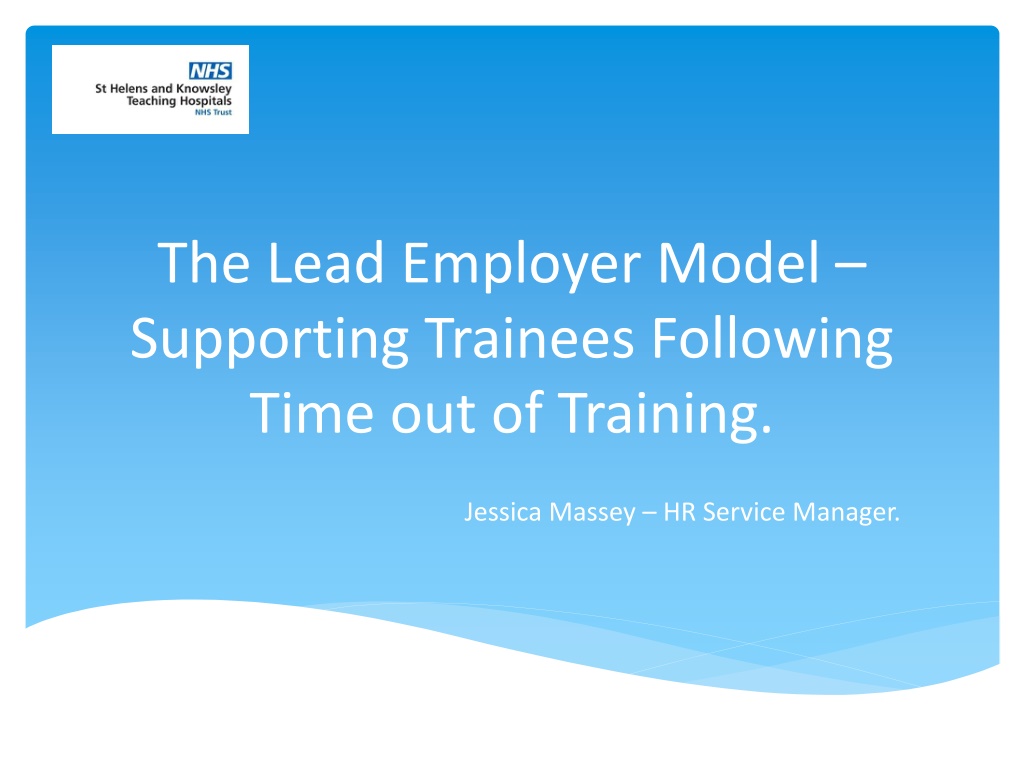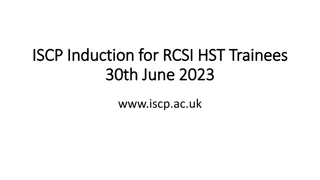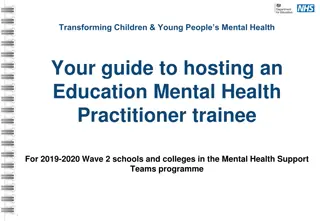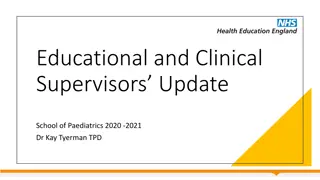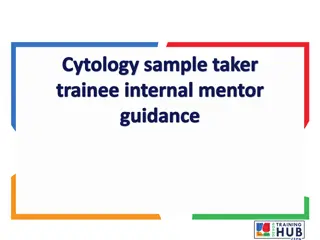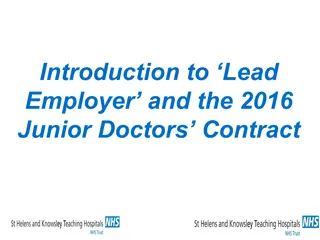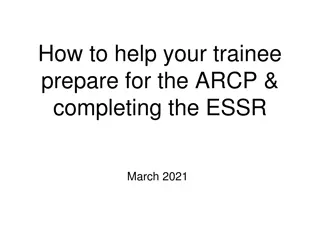Supporting Trainees Following Time out of Training
The Lead Employer Model provides support to trainees returning to work after sickness or maternity leave, offering measures like phased return to work, reasonable adjustments, and health concerns under the Equality Act. The program aims to assist trainees in resuming their training smoothly. For further inquiries, contact leademployer.casemanagement@sthk.nhs.uk.
Download Presentation

Please find below an Image/Link to download the presentation.
The content on the website is provided AS IS for your information and personal use only. It may not be sold, licensed, or shared on other websites without obtaining consent from the author.If you encounter any issues during the download, it is possible that the publisher has removed the file from their server.
You are allowed to download the files provided on this website for personal or commercial use, subject to the condition that they are used lawfully. All files are the property of their respective owners.
The content on the website is provided AS IS for your information and personal use only. It may not be sold, licensed, or shared on other websites without obtaining consent from the author.
E N D
Presentation Transcript
The Lead Employer Model Supporting Trainees Following Time out of Training. Jessica Massey HR Service Manager.
Long Term Sickness The bulk of the work the LE does with regards to returning to training is with trainees who have been off work due to sickness (+28 days) Referrals to Health Work and Wellbeing Working with the trainee to implement any restrictions/ adjustments recommended by HWWB clinicians. Training Clock the difference between returning to work and returning to training
Supportive Measures Phased return to work Amended hours e.g. varied start/ finish times LTFT Adjustments to duties e.g. no on-call/ OOH/ night work Buddy/ mentor scheme within the department/ host organisation Access to work input
Health Concerns &The Equality Act. Definition of Disability: S6(1) Equality Act 2010 - a person has a disability if they have a physical or mental impairment and the impairment has a substantial and long-term adverse effect of their ability to carry out normal day to day activities EqA Schedule 1 - the effect of an impairment is long-term if it has lasted for at least 12 months, it is likely to last for at least 12 months Recurrent conditions
Reasonable Adjustments Purpose of reasonable adjustments is to avoid or cancel out a disadvantage to a disabled person in comparison with those who are not disabled What is reasonable will depend on the employer and the circumstances Onus is on the employer to investigate and suggest adjustments (Advice from HWWB) Medical advice can assist Access to Work
Maternity / OOP Cases KIT days Risk assessments Support and guidance re breastfeeding HWWB input for OOP cases & maternity if needed HR involvement with OOPC cases Management Information picking up on trainees who resume work in line with rotation days
Any Questions? If you require any further information please contact leademployer.casemanagement@sthk.nhs.uk
